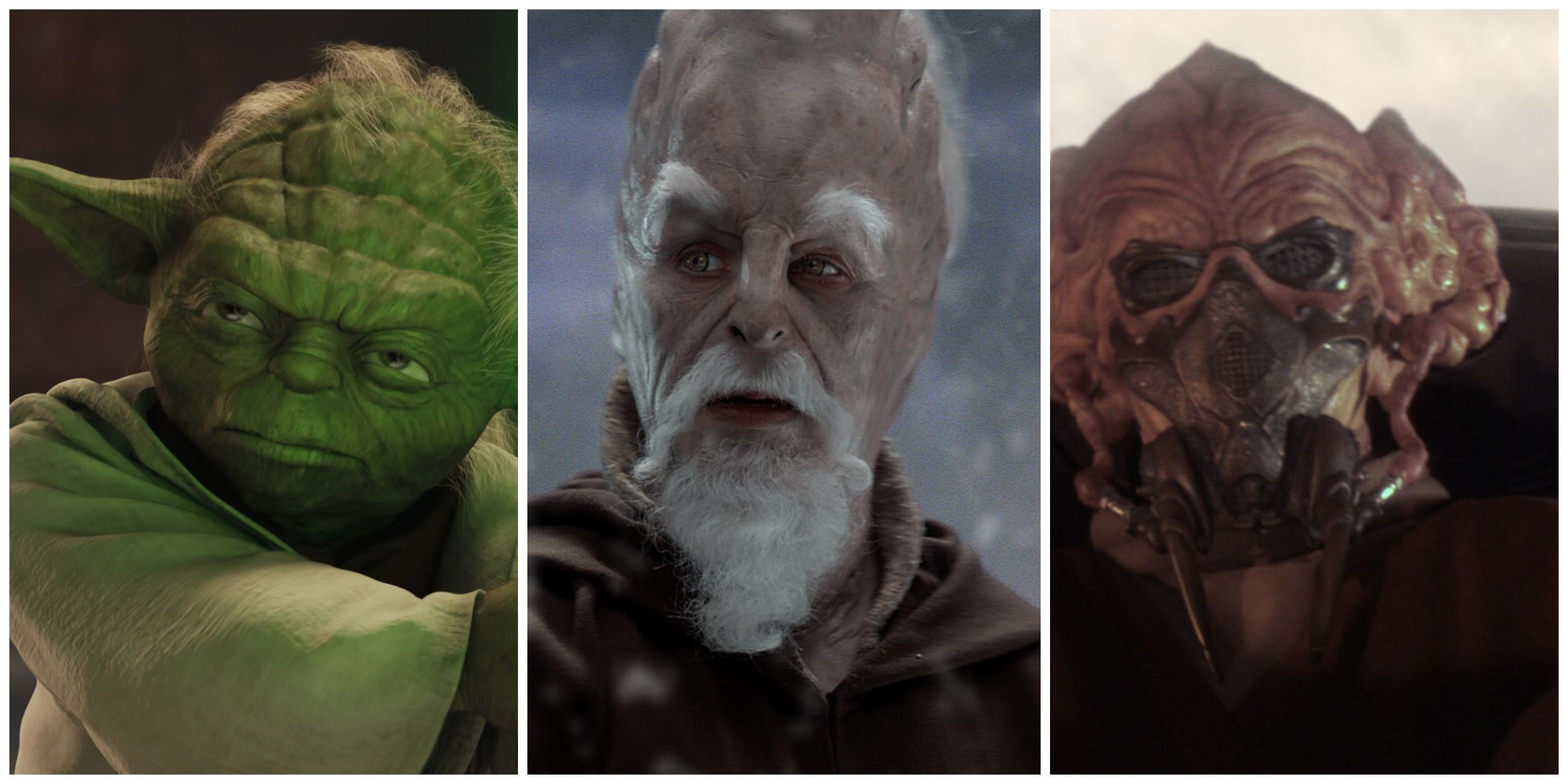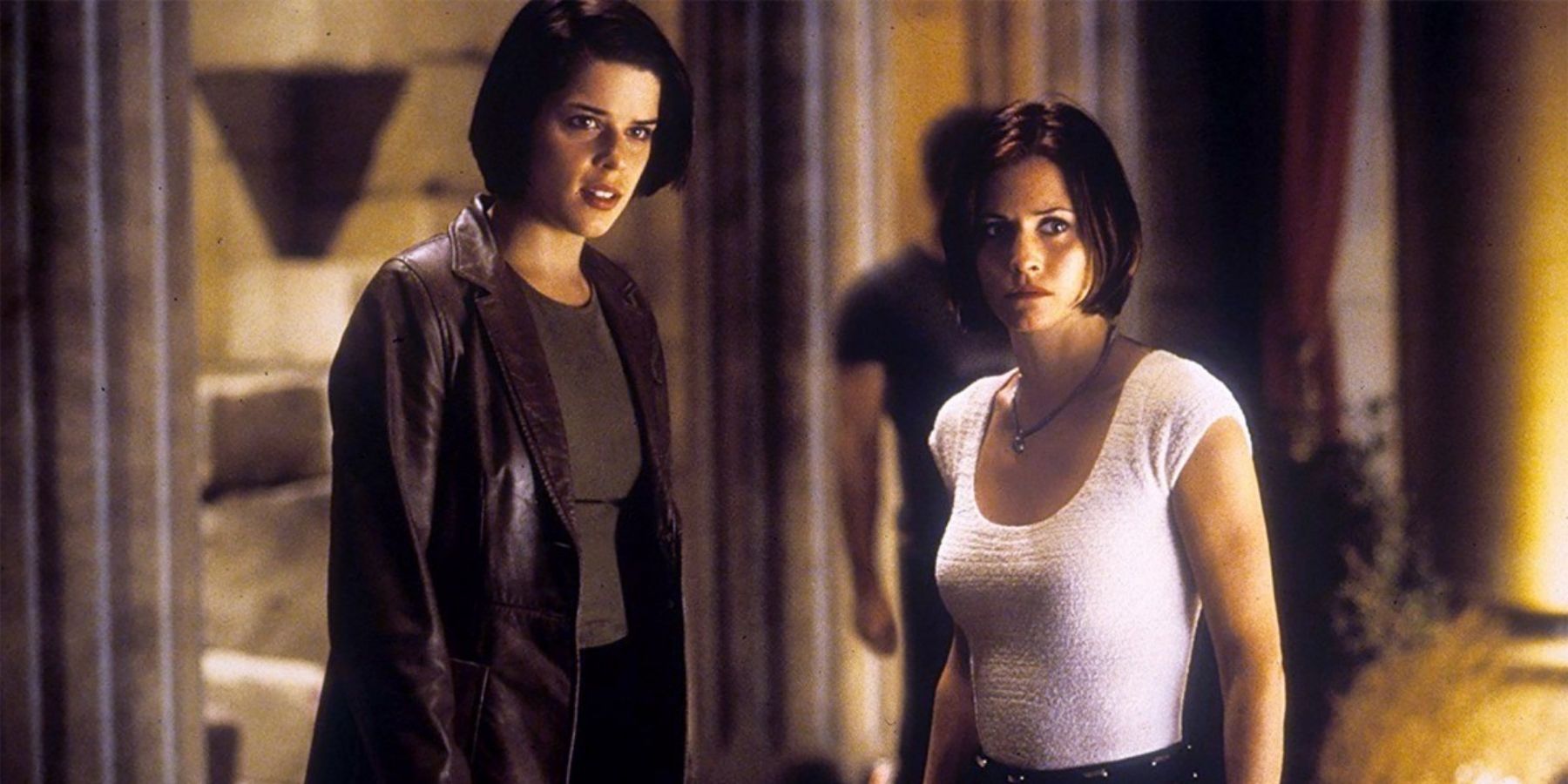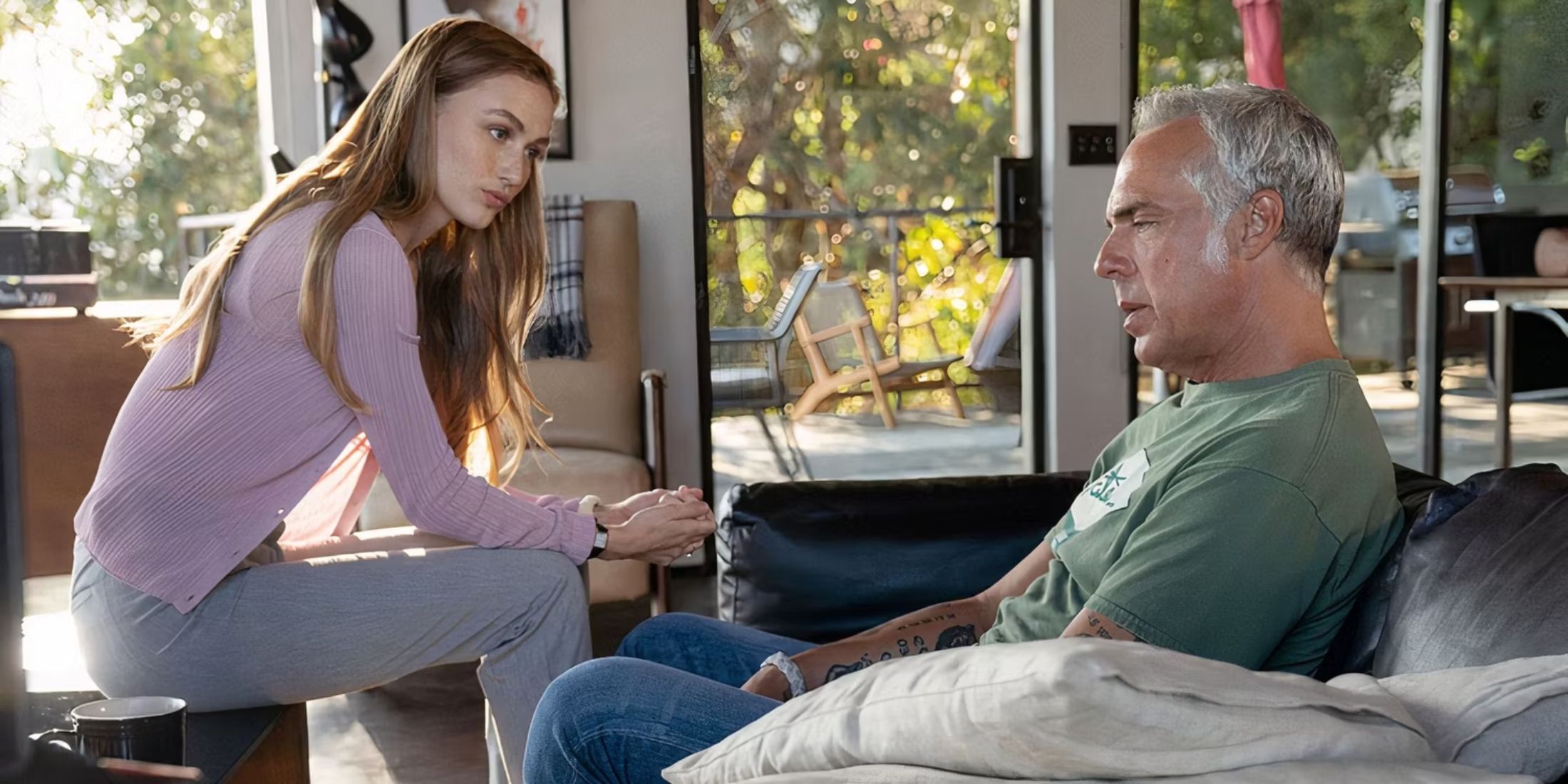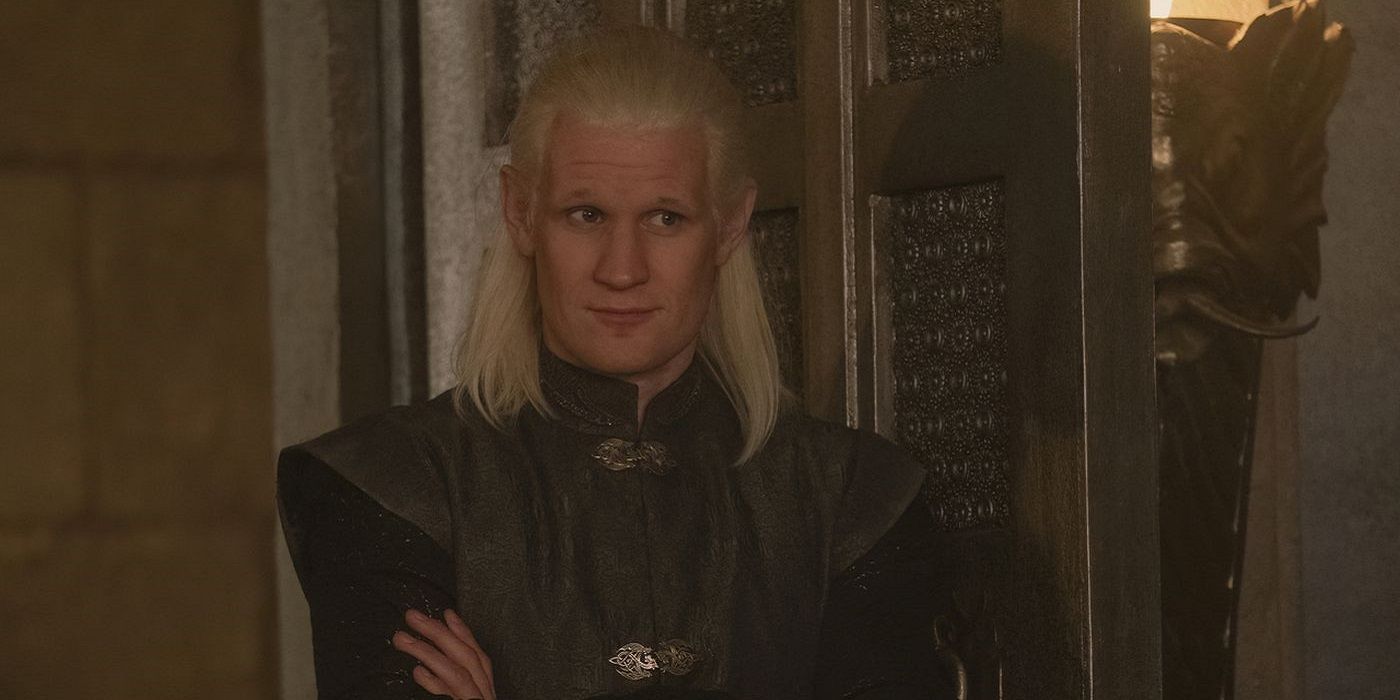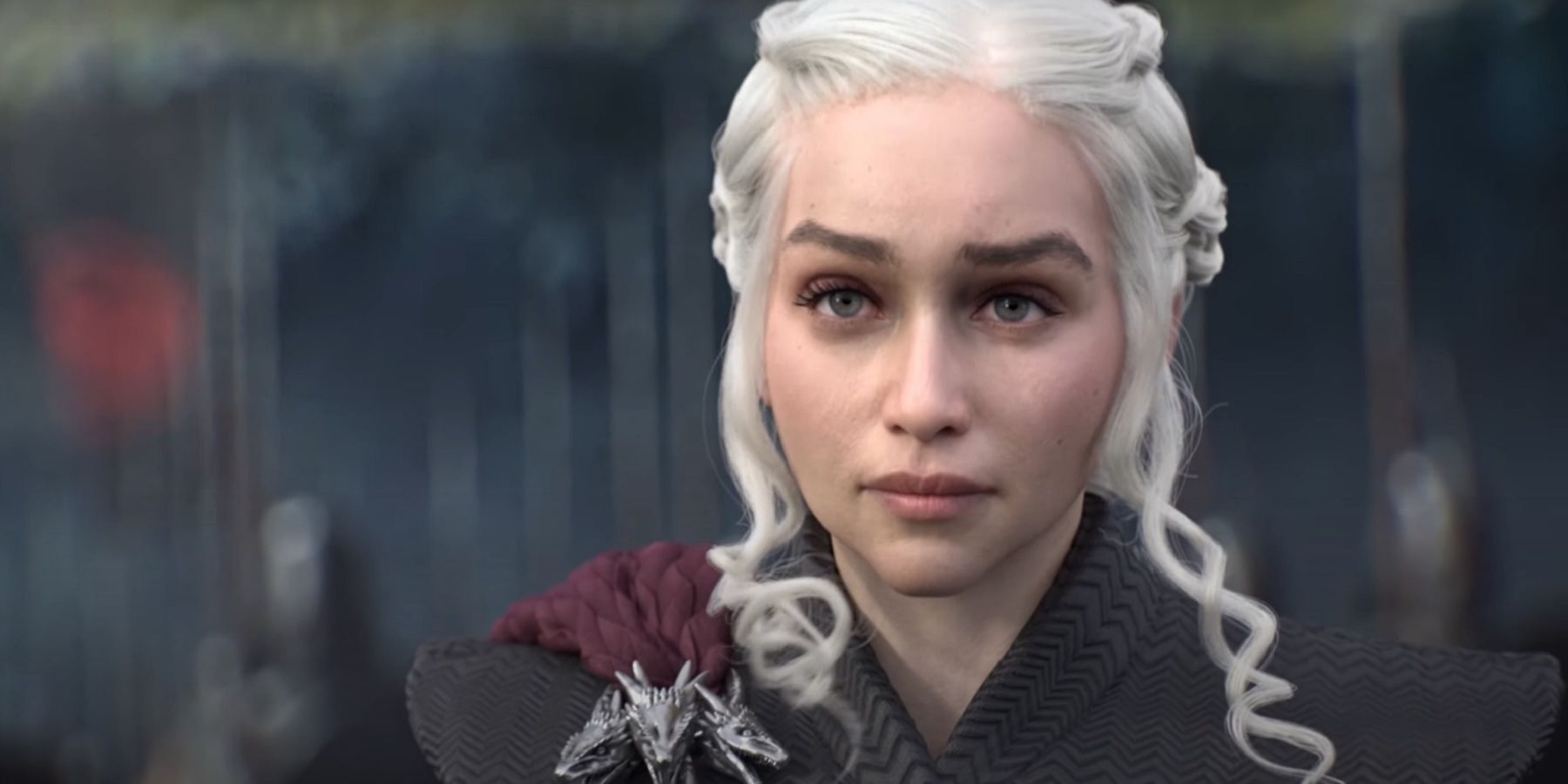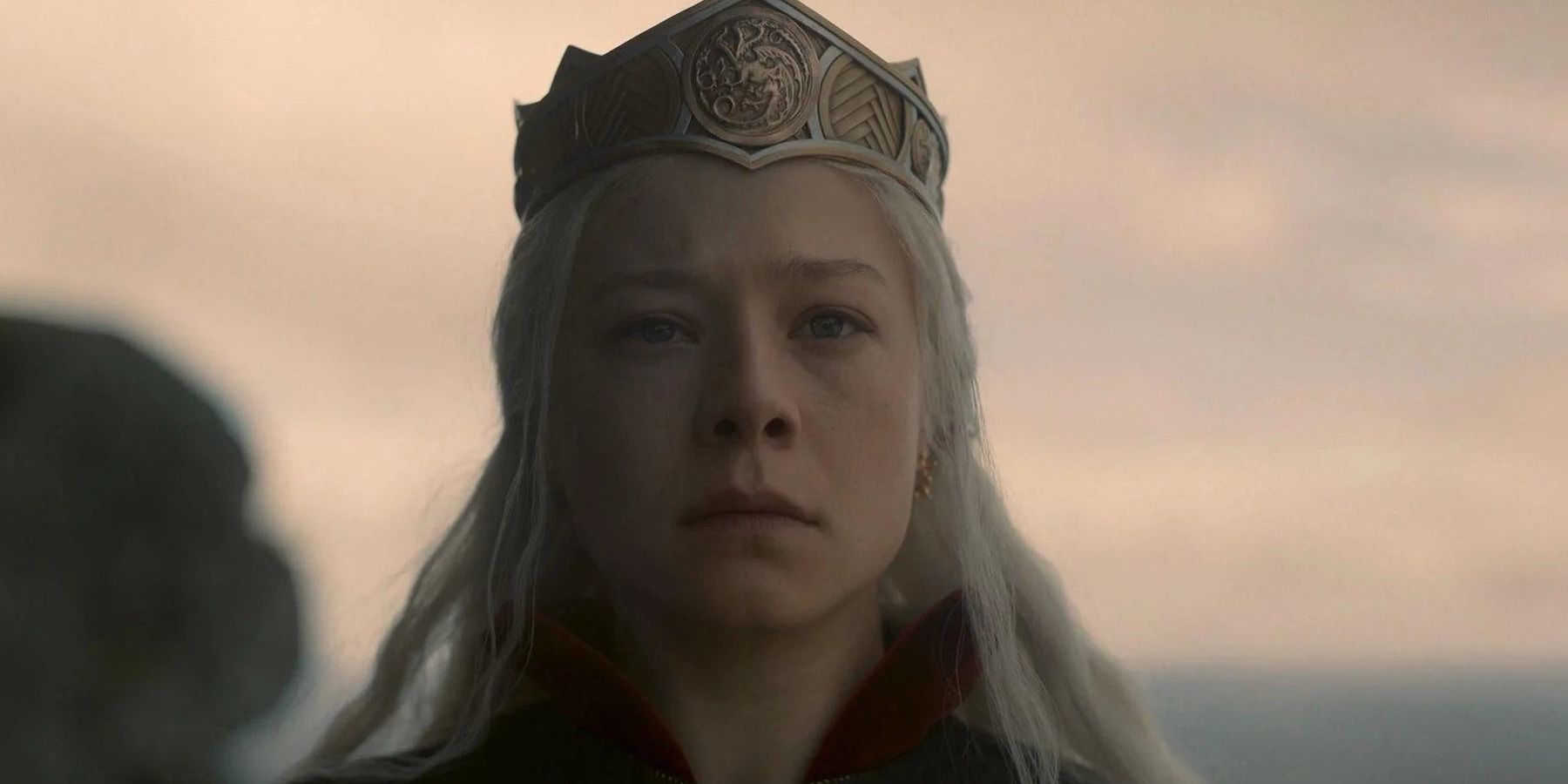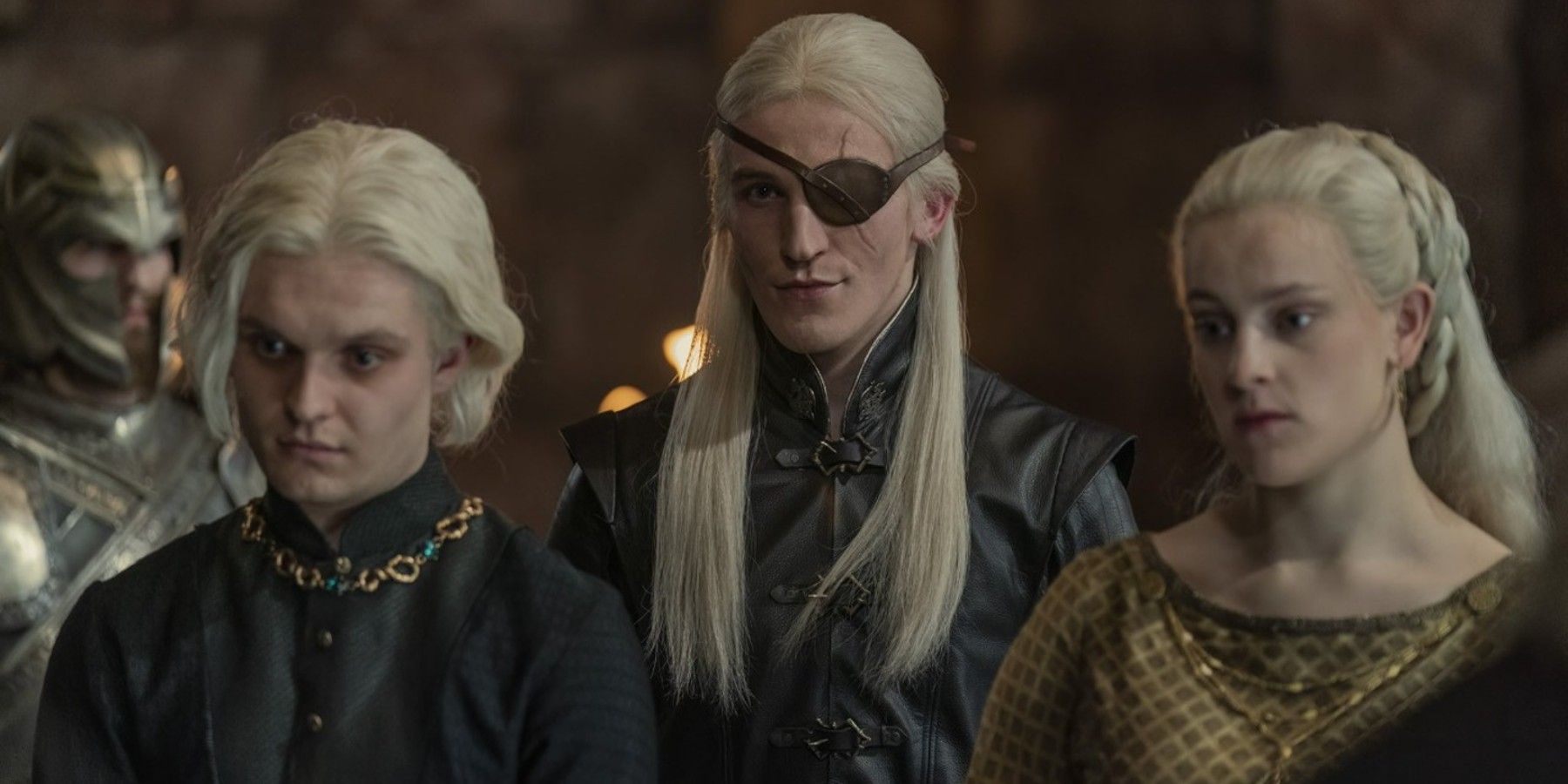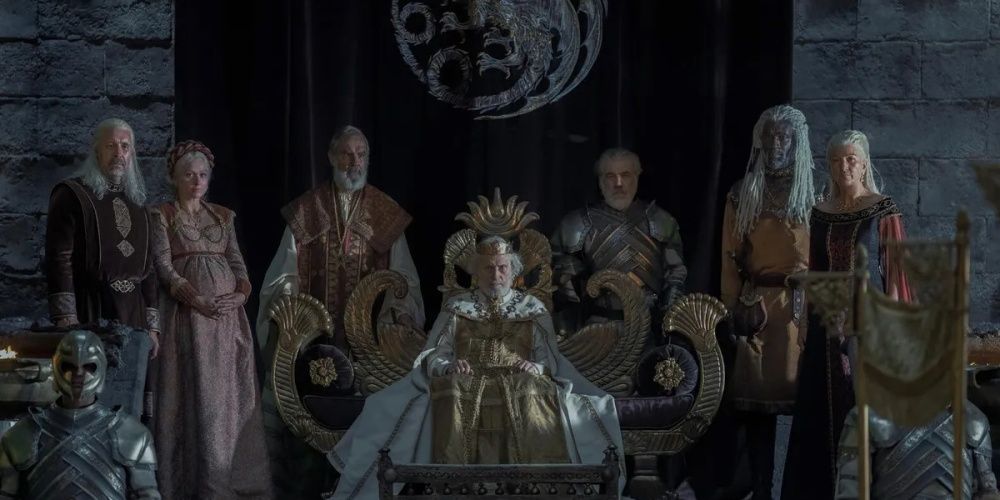The following article contains spoilers for House of the Dragon.
Westeros is not a nice place, and it’s really not supposed to be. After all, George R.R. Martin’s A Song of Ice and Fire was always meant to draw inspiration from the Middle Ages, so considering House of the Dragon is a prequel to that era, it should be no surprise that the series showcases some of the worst human history has to offer without the added lessons form the Dance of Dragons period.
Still, though scandal is intrinsic to House of the Dragon, it’s also partly why its predecessor became a worldwide phenomenon. The novels' countless depictions of horrific violence, sexual assault, and painful child labor, all of which could have only made it to HBO, helped adorn its larger world of high-stakes political scheming. Nevertheless, it’s not rare for audiences to misinterpret, become offended, or in some cases glorify the heinous acts committed by Martin’s characters. But doing that fails to see a central idea in his writing: that pretty much everyone in Westeros is a terrible person.
There Are No Heroes
Whereas Game of Thrones featured the Starks, Daenerys, and Sam as its most redeemable characters, as well as some other names whose life expectancy was usually quite short (e.g. Lucerys), House of the Dragon plays a no-nonsense hand. These are, after all, the families and people that brought an illustrious dynasty and civilization practically to its knees, while ensuring the extinction of the mythical dragon species in the process. Fire & Blood is a story without good guys, or at least, one where surely they don’t win.
However, the novel that the new show is based on features a writing style that is more akin to a Citadel-sanctioned Wikipedia entry, rather than Martin’s preferred storytelling first few books. That is why showrunners Ryan Condal and Miguel Sapochnik had to make a few changes. The main one is that House of the Dragon’s protagonists seem more human. Their goals and motivations gain new insight that allows the audience to pick sides, as well as brilliantly bypassing the thought of just how irredeemable they all are.
Think of Rhaenyra and Daemon Targaryen. Their incestuous relationship is perhaps even worse than Jamie and Cersei’s, given that the added age difference instills it with a potential abuse component. Yet, although the former couple was an item viewers pretty much had no choice but to accept, House of the Dragon’s expansive development of Martin’s ideas makes it so that some people might fall into the trap of shipping the uncle and niece marriage. It lacks the condemnatory tone a narrator adds to it.
Martin himself has completely disavowed incest in Westeros; yet, some House of the Dragon fans are misled to forego their modern views for Rhaenyra and Daemon. The writer’s clever ruse is unveiled when viewers see Daemon threatening his wife/niece, after the audience was tricked into thinking this certified psychopath can abandon his true nature out of pure love. Sorry, not in Westeros.
Preferring team green or black is not a matter of rooting for the good guys or the villains. House of the Dragon cements the idea that there’s no such thing in the Game of Thrones, and it’s possibly why Martin loves what the show has done with his writing.
Martin’s Shock And Awe
Even though A Song of Ice and Fire novels have been criticized for their infinite instances of rape and incest, and House of the Dragon has toned down Game of Thrones’ graphical portrayal of such crimes, Martin always uses sordid acts to help set the tone. Both shows treat their women horribly because that’s what the Middle Ages did. The entire conflict in the prequel series is that Rhaneyra is an unsavory trailblazer, who is unfortunately no more worthy of the Iron Throne than Alicent’s “lovely” sons.
Whenever a character commits a despicable act, there’s rarely any going back from that path. The only difference is that House of the Dragon doesn’t have anyone with the moral virtues of Jon Snow. “Criston Cole beat Daemon in combat, he must be cool.” Just wait and see what happens. Daemon is a cool warrior? Well, he’s also very capable of hurting Rhaenyra. “Viserys is a pretty decent king?” Depends on who he's compared to, but he’s a pretty lousy father, so it’s no wonder his other kids turned out so terrible, even accounting for the poor Targaryen gene lottery.
Martin’s books have always focused on how lousy most of his characters are at governing, since they rarely did or accomplish anything to obtain a privilege instead given to them by birthright or force. Everything that happens in both books and shows is a representation of the sorry state society was 500 or even 100 years ago, as opposed to how it is now, regardless of its imperfections.
In spite of scandalous scenes sometimes coming off as the focal point of the stories in the franchise, viewers or readers should never let those images distract them from the bigger reality where they manifest. Very few people can escape being corrupted by Westeros, a world governed by the darker shades of gray, at least for the next 200 years, until a certain Prince that was promised comes along.

